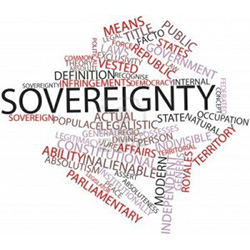Bulletin – First Republic News, Announcements and Features
Glossary

Preface
The official language for FRRf and its’ Ministries is common English. We are aware of, and take into consideration legal language, official language, jargon and codes that all Corporations use to write their treaties, statutory laws and so on. We will use in each case what is required depending on the situation. In commerce we usually use general definitions which can be found within Uniform Commercial code, Blacks Law and International Treaties. We are also aware of : CORRECT-SENTENCE-STRUCTURE-COMMUNICATION-PARSE-SYNTAX-GRAMMAR-PEFFORMANCE.
Glossary of Key Words and Phrases
Allodium: land freely held, without obligation of service to any overlord.
Autonomy: the ability of an entity to establish its own rules of conduct and to follow those rules (sovereignty).
Country: the portion of the earth’s surface occupied by an independent nation or people; or the inhabitants of such territory (i.e., dominions occupied by a community).
Culture: a like-minded group of indigenous people who have developed their own tribal ways, customs and traditions, and under the same ways to determine their sovereignty and birthright to Life, Liberty and Happiness (i.e., their common law, their law of the land etc.).
Currency: a system of money issued by a State on a national territory, used by people in that nation, allowing them to carry out monetary exchanges.
Dominion: supreme authority (sovereignty); territory over which such authority is exercised.
Empire: The dominion or jurisdiction of an emperor; the region over which the dominion of an emperor extends; imperial power; supreme dominion; sovereign command.
Government: the group of people with the authority to govern a country or state; a particular ministry in office.
Indigenous: native; the earliest known people of a region, territory or country.
Jurisdiction: the authority or power of the court to determine a dispute between parties as well as the territory over which the legal authority of a court extends.
Kingdom: a governmental unit, country, state or territory ruled by a King or Queen (sometimes with a Constitutional Monarchy).
Land and Soil Jurisdiction: land is the surface area of earth-plane which is not covered by water. Soil is a thin grainy layer which covers the land area, which is made up of organic matter, minerals and weathered rocks.
Nation: a large body of people united by common descent, history, culture, or language, inhabiting a particular country or territory.
Promissory Note: a written promise to pay a debt by a specific date.
Solidarity – an agreement between and in support for the members of a group.
Sovereign: one who exercises power without limitation (soul reigning in the body); the state of complete autonomy and self-governance.
Sovereignty: essentially, the power to make laws; power is to be beyond the power of others to interfere.
State: a nation or territory considered as an organized political community under one government.
Territory: an area of land under the jurisdiction of a ruler or state.
Treaty – a written international agreement between two or more countries or states governed by international law.
Glossary of Abbreviations
Note: We make a distinction between statutory “bankrupt” entities and common law entities. For example, the use of UCC (ALL UPPER-CASE) being a statutory (legal) situation, whereas the use of UCc being a common law (lawful) situation.
cLP – common Law Principia
cLPT – common Law Pure Trust
DcLPTC – Declaration of a common Law Pure Trust Contract
eEJET – exclusive Equity Jurisdiction Express Trust
FRIIt – First Republic Institution International treaty
FRRf – First Republic Registrar foundation
FRSt – First Republic Sovereign treaty
ICC – International Criminal Court
ICJ – International Court of Justice
PTc – Pure Trust certificate
PTp – Pure Trust provisions
sICC – sovereign International Criminal Court
sICJ – sovereign International Court of Justice
UCc – Uniform Commercial code
UDCRf – Universal Digital Currency Reserve foundation
URSn – United Republic of Sovereign nations
